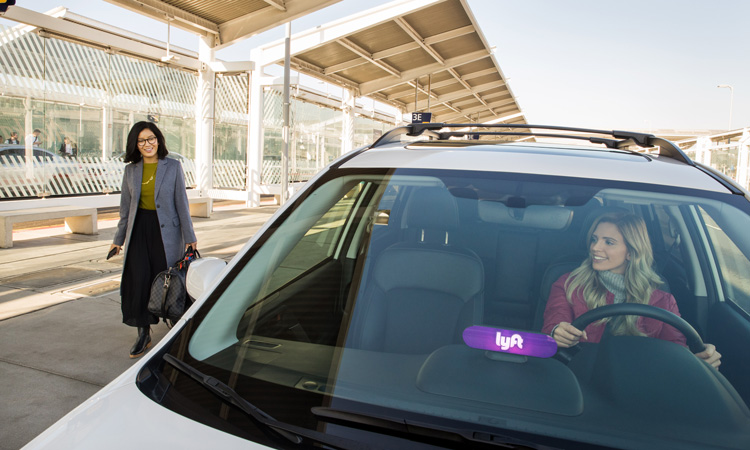Lyft publishes first environmental, social and governance report
- Like
- Digg
- Del
- Tumblr
- VKontakte
- Buffer
- Love This
- Odnoklassniki
- Meneame
- Blogger
- Amazon
- Yahoo Mail
- Gmail
- AOL
- Newsvine
- HackerNews
- Evernote
- MySpace
- Mail.ru
- Viadeo
- Line
- Comments
- Yummly
- SMS
- Viber
- Telegram
- Subscribe
- Skype
- Facebook Messenger
- Kakao
- LiveJournal
- Yammer
- Edgar
- Fintel
- Mix
- Instapaper
- Copy Link
Posted: 4 August 2020 | Sam Mehmet (Intelligent Transport)
The report, which aims to evaluate what the firm has already delivered and is planning to deliver in the future, will be released annually.


Ride-hailing and micromobility firm Lyft has published its first environmental, social and governance (ESG) report to evaluate its impacts on the cities and areas it operates in.
“We have always focused our efforts on delivering the economic, social, and environmental benefits of redesigning our cities around people — not cars — and making seamless, affordable transportation available to all by eliminating transportation as a barrier to upward mobility,” Logan Green, co-founder and CEO of Lyft, wrote in a blog plost.
“In order to execute our mission, we must deliver for all of our stakeholders – including drivers and riders, as well as partners, shareholders, and policymakers. This drives our work on a wide range of issues, including transportation access and equity, economic mobility, and sustainability,” the blog post continued.
The report focuses on four key pillars:
- The environment: The report highlighted that Lyft currently has a number of green transportation options available, including electric vehicles (EVs), bikes and scooters. The firm has made a commitment to reach 100 per cent EVs on the Lyft platform by 2030,which reportedly has the potential to avoid tens of millions of metric tonnes of greenhouse emissions and to reduce gasoline consumption by more than a billion gallons over the next decade. The ESG report also includes a review of Lyft’s environmental footprint
- Economic impact: Lyft has committed to creating “reliable and flexible ways for drivers”, 90 per cent of whom drive less than 20 hours a week, according to the report. The company has stated that it is focused on making transportation more accessible and equitable, citing that 40 per cent of Lyft rides in the U.S. start or end in low-income areas and 500,000 riders reported living with a disability in 2019
- Social impact: In 2019, Lyft launched the LyftUp programme, a collection of initiatives that aimed to help bridge transportation gaps in underserved communities by connecting people with critical resources (food, jobs, voting) through free or discounted car, bike, or scooter rides. In response to the COVID-19 crisis, the report noted that Lyft activatedmore than 500 non-profit partners through LyftUp to provide free rides to those who need them most, including a focus on communities of colour
- Corporate governance: The report explained that “Lyft is focused on doing the right thing, and that includes our corporate stewardship. We value independence and diversity on our board of directors, are dedicated to upholding human rights, and committed to running our business in an ethical way.”
The full report can be found here.
Related topics
Business Models, Fleet Management & Maintenance, Mobility Services, Passenger Accessibility, Sustainable Urban Transport, Transport Governance & Policy, Vehicle & Passenger Safety
Related modes
Ride-sharing & Car-sharing, Taxi
Related organisations
Lyft
Related people
Logan Green







